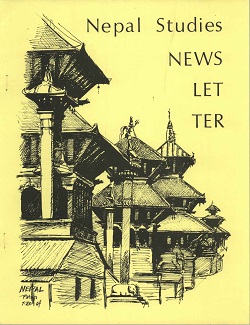Author Biography
Ankur Datta teaches at the Department of Sociology at South Asian University. He conducted fieldwork among Kashmiri Pandits in Jammu who have been displaced by the conflict in the Kashmir Valley. His work addresses themes of displacement and dislocation, place-making, and the politics of victimhood. He has published articles based on his research in different journals such as Modern Asian Studies and Contributions to Indian Sociology, and has edited a special issue on victimhood in Seminar. He is the author of On Uncertain Ground: Displaced Kashmiri Pandits in Jammu and Kashmir (Oxford University Press, 2017).
Abstract
The displacement of the Kashmiri Pandits, the Hindu minority of the Kashmir valley, following the insurgency remains a controversial event in the region, especially with regards to the cause of their ‘exodus.’ While the Pandits have lived since then in Jammu, New Delhi and elsewhere, remaking their lives that were disrupted in displacement, they inhabit a complex political location. Pandit political expression, especially for those outside Kashmir, is framed in opposition to Kashmiri nationalism and in line with Indian nationalism in its various forms, including Hindu nationalist politics. This paper attempts to understand Pandit victimhood in relation to their emotional experience, with emphases on anger and despair. Drawing on ethnographic fieldwork, conversations and discussions during fieldwork in Jammu among displaced Pandits from 2005-2007, followed by short visits in 2008 and 2012, I will first describe two brief encounters where sentiments of anger are expressed, that are seemingly minor and ordinary, but which provide a way to understand anger and rage in shaping everyday social and political life. I will then discuss another set of encounters where anger transforms into despair. In this paper, I explore if these sentiments and forms of expression constitute a continued form of pain and despair that remains unrecognized. Through these encounters and an exploration of sentiments expressed, I will discuss how anger is a form of continuous pain, which is caught in a tension between distinct and extraordinary forms of expression and experiences and feelings that appear ordinary and universal.
Acknowledgements
The author wishes to thank Haley Duschinski for her encouragement and comments on the first version of the paper. The author also wishes to thank the two reviewers for their suggestions. This paper is based on fieldwork funded by the Central Research Fund, University of London.
Creative Commons License

This work is licensed under a Creative Commons Attribution-Noncommercial-No Derivative Works 4.0 License.
Recommended Citation
Datta, Ankur. 2020. The Dull Pain of Simmering Anger: Affective and Emotional Experiences among Displaced Kashmiri Pandits. HIMALAYA 40(1).
Available at:
https://digitalcommons.macalester.edu/himalaya/vol40/iss1/9


